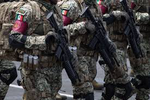Biography
I am a Postdoctoral Research Associate in Democracy in the Kellogg Institute for International Studies at the University of Notre Dame, where I was previously also a Visiting Fellow (Autumn 2023).
I am on leave from my British Academy Postdoctoral Fellowship in the Department of Politics (DPIR) at the University of Oxford. Previously, I worked as a Departmental Lecturer in the Latin American Centre (LAC) of the Oxford School of Global and Area Studies (OSGA). During 2022 and 2023, I also served as the Stipendiary Lecturer in Politics at Keble and St Hugh’s College, Oxford. I am passionate about the political economy of regime change, subnational politics, and democratic institutional design. My research aims to strengthen our understanding of subnational regime variation, paying particular attention to Brazil, Mexico, Argentina, and other countries in the Global South.
Methods wise I’m an advocate for ‘theory-grounded eclecticism’. I strongly believe that quantitative literacy is fundamental and that at the core of every ‘useful model’ lies robust historical and case-specific knowledge. In learning and teaching CHA and ‘metrics, I encourage a hands-on and problem-solving approach. In my research, I use a mixed or multi-method approach to hone in on the ‘causes of effects’ & the ‘effect of causes’.
At Oxford, I taught and supervised graduate and undergraduate students. I have also previously worked for Pembroke College, and for the the DPIR as a statistics GTA. In the UK I’ve also worked as a Postdoc at the University of Manchester, and as an Associate Lecturer at the Oxford Brookes University.
Beyond academia, I offer expert consulting services on the politics of Latin America, providing tailored advice to media as well as public and private organisations. Get in touch to discuss your needs, or find out more here about rates and available services.
I enjoy working out, swimming, and long walks. I’m also a Starcraft 2 fan, and a sci-fi, coffee, and cinema aficionado.
Download my resumé.
Interests
- Regime Change
- Subnational Politics
- Democratic Institutional Design
- Latin American Politics
Education
DPhil in Politics, 2021
University of Oxford
MPhil in Politics (Comparative Government), 2017
University of Oxford
BA in Political Science and Public Administration, 2013
Universidad Iberoamericana (CDMX)
Skills
Research and Analysis
100%
R
90%
Statistics
100%
Mendeley
100%
Teaching
100%
Photography
10%
Previous Experience
Visiting Fellow
Kellogg Institute for International Studies
Responsibilities include:
- Collaborative and individual research.
- Advise and (informally) mentor graduate students.
- Engagement with academic and wider audiences.
Departmental Lecturer in Latin American Studies
University of Oxford
Responsibilities include:
- Teaching graduate-level courses.
- Supervision of graduate students.
- Coordinate and Chair Research Seminars.
Postdoctoral Research Associate
University of Manchester
Responsibilities include:
- Data cleaning.
- Data analysis.
- Coordinate small team of RAs.
Stipendiary Lecturer in Politics
Pembroke College, Oxford
Responsibilities include:
- Intro to Politics (Prelims)
- Politics in Latin America
- Political Sociology
- Comparative Government
- One-on-one and small group teaching.
Associate Lecturer
Oxford Brookes University
- Course: Development and Social Change in Latin America
- Large group teaching.
- Seminars.
- Admin and Office Hours.
Undergraduate Tutor
University of Oxford
Responsibilities include:
- Politics in Latin America
- Statistics (Q-Step 1)
- Comparative Government
- One-on-one and small group teaching.
High School Teacher
ITESM Tec de Monterrey Campus Santa Fe
- Course: Social, Political and Economic Structure of Mexico
Scholarships, Grants and Awards
Democracy Initiative Catalyst Grant
Frank Cass Prize
APSA William Anderson Award
Teaching Excellence Award
Recent Posts
Ballots, Bots, and Bullets - The Complex Landscape of Mexico’s 2024 Election
Projects & Work in Progress
Determinants of Subnational Polyarchy in Contemporary Brazil
The Origins of Subnational Democracy
Featured Publications
Multilevel Regime Decoupling: The Territorial Dimension of Autocratization and Contemporary Regime Change
In this piece, I conceptualize and present evidence for multilevel regime decoupling (MRD), the phenomenon by which regimes across different territorial levels inside countries move in separate directions.
The Persistence of Latin America’s Violent Democracies
In this collaborative piece with Daniel Barker, we map the latest scholarly developments on how Latin America has dealt with the challenges posed by violent, militarized state and non-state actors.
Measuring and assessing subnational electoral democracy: a new dataset for the Americas and India
I introduce the Index of Subnational Electoral Democracy (ISED) and use it to assess subnational regimes in 9 Latin American countries, the USA, Canada, and India.
Contact
- javier.perezsandoval@politics.ox.ac.uk
- Manor Road Building, Oxford, OX1 3UQ


